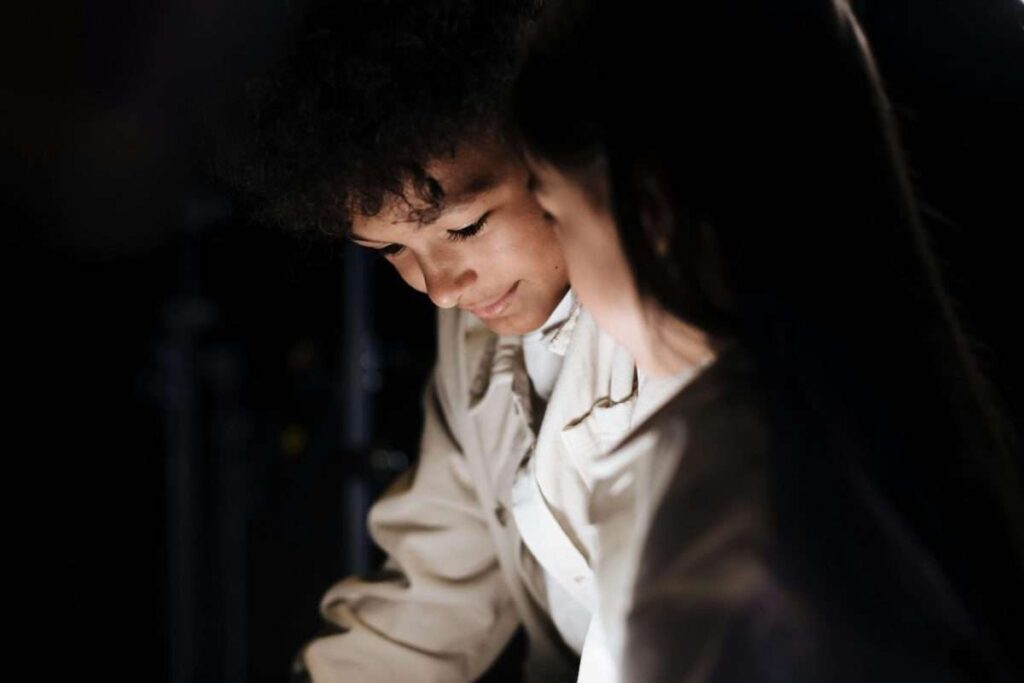In today’s rapidly evolving and often fractured world, emotional intelligence (EQ) sits as a beacon — guiding individuals toward healthier relationships, effective communication, and personal growth.
Against this backdrop, cultivating EQ in children becomes both imperative and necessary.
“We know from the research that kids who come from a home with emotionally intelligent parents, those are kids who are going to naturally develop it,” says Dr. Jackie Eldridge, a distinguished educator, entrepreneur, best-selling author, and lecturer at the University of Toronto,’s Ontario Institute of Studies in Education (OISE).
Dr. Eldridge, a certified coach in emotional intelligence and a mother of three spoke to Lianne Castelino in an interview for Where Parents Talk.
What is Emotional Intelligence?
Emotional intelligence, EQ or emotional quotient, comprises a set of social and emotional skills that enable individuals to:
- Perceive and Express Emotions: Recognizing one’s own emotions and those of others.
- Maintain Social Relationships: Building and nurturing meaningful connections.
- Cope with Challenges: Navigating life’s ups and downs with resilience.
- Utilize Emotional Information: Making informed decisions based on emotional insight
“These skills affect every aspect of our lives, from personal relationships to professional interactions,” says Eldridge.
Why is Emotional Intelligence Important?
In an era marked by heightened sensitivities and conflicts, understanding and managing emotions has never been more essential. “We don’t live in caves; we live among people, in communities,” says Dr. Eldridge. Recognizing the integral role of emotional and social interactions, especially for children learning through observation, becomes paramount. We are thinking up to 80,000 thoughts a day, feeling up to 400 emotions a day. And so we can’t get away from that. And sometimes our emotions can kind of get carried away. And so we have to understand how we regulate emotions,” she says.
Parents: The First Teachers of EQ
Parents undeniably play a foundational role in nurturing their children’s emotional intelligence. Dr. Eldridge offers actionable insights for parents:
- Self-Reflection: Understand your own emotional strengths and areas for growth.
- Model Behaviour: Demonstrate appropriate emotional responses in various situations.
- Engage in Dialogue: Foster open and honest conversations about feelings and experiences.
- Integrate EQ in Daily Activities: Choose stories that highlight emotional themes, discuss character behaviours in movies, and involve children in decision-making processes.
By embedding these practices into daily routines, parents can create a supportive environment that champions emotional development.
Navigating Adolescence with Emotional Intelligence
Adolescence, a transformative phase extending into the mid-20’s, brings heightened emotional expressions and challenges. Dr. Eldridge advises:
- Educate Yourself: Read about adolescent development to better understand this stage.
- Maintain Open Communication: Encourage discussions about feelings, challenges, and experiences.
- Model Empathy and Regulation: Demonstrate understanding and patience, showcasing effective emotional management.
Enhancing Personal Emotional Intelligence
For parents and individuals new to the realm of emotional intelligence, Dr. Eldridge recommends:
- Dive into Literature: Explore books by experts like Daniel Goleman.
- Attend Workshops: Engage in sessions focused on emotional intelligence and personal growth.
- Set Emotional Goals: Reflect on the emotional aspirations you have for yourself and your children.
- Practice Mindfulness: Incorporate mindfulness techniques to enhance self-awareness and regulation.
Community and Shared Experiences
Through her workshops, Dr. Eldridge has observed a common theme: many individuals feel isolated in their emotional journeys. By fostering open discussions about emotional intelligence, a sense of community and shared experience emerges. She notes, “By discussing emotional intelligence openly, individuals realize they are not alone,” highlighting the transformative power of collective growth.
Empathy: The Heartbeat of EQ
Empathy transcends sympathy; it’s about truly understanding and sharing the feelings of others. “Empathy is not just about feeling sorry for someone but about putting oneself in their shoes,” says Dr. Eldridge. Cultivating empathy not only strengthens interpersonal relationships but also offers academic advantages, helping children relate to stories and diverse experiences.
Related links:
Related articles:
The Keys to Social Success in Children
Strategies to Build and Strengthen Emotional Resilience in Kids
Understanding Anxiety Styles and their Impact on Parenting




